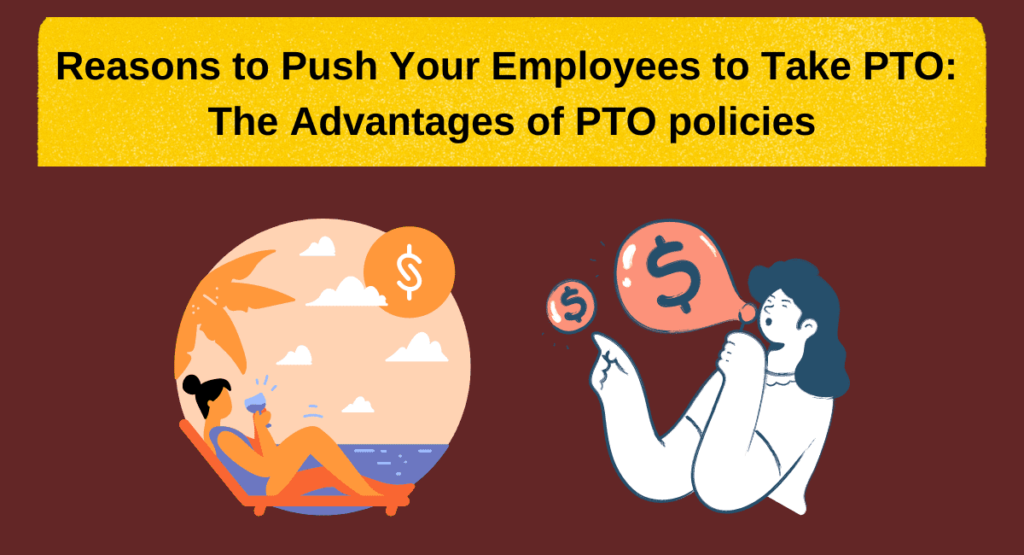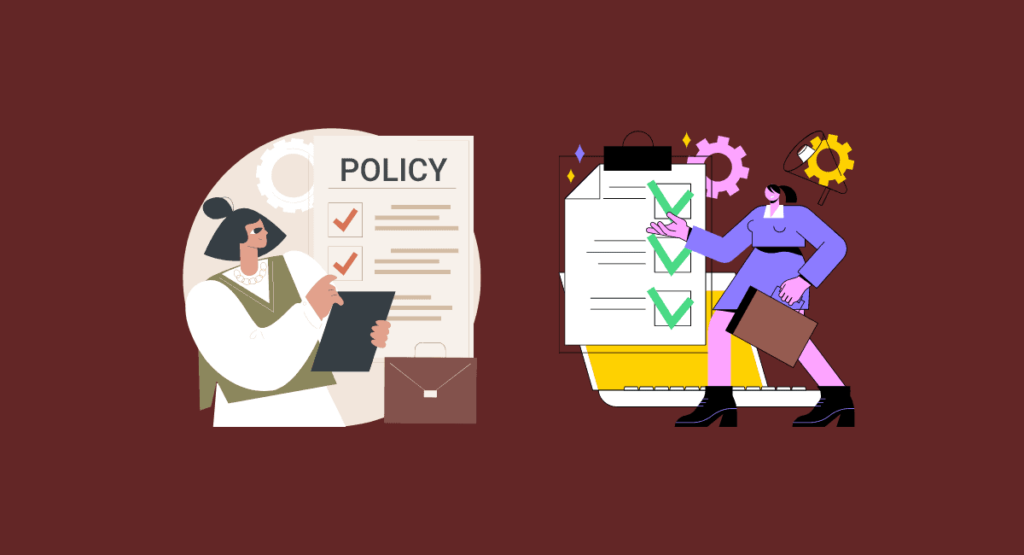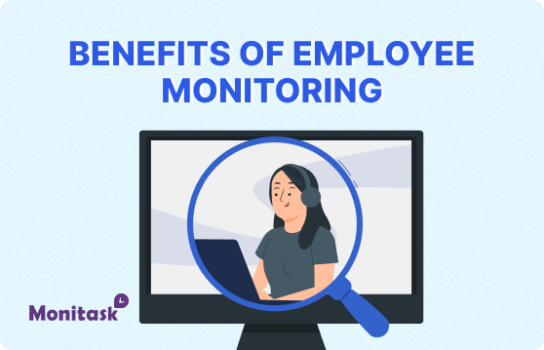Why You Should Make Sure Your Employees Take Their PTO


Are you bosses who always ask your employees to take PTO? If so, there are a few good reasons for doing that.
This article will discuss the advantages of allowing employees to take time off.
PTO (paid time off) can do wonders for your business, and it’s essential to encourage your team members to take advantage of it!
What is PTO?
PTO stands for paid time off. It’s a benefit that employees often receive from their employers, which allows them to take time off work for vacation, sick days, or personal reasons. Some employers will also offer PTO hours as an employee’s total compensation package.
Employees are your business’s greatest assets

Your employees are your greatest assets. They work hard to make your business successful and take on many responsibilities.
How are companies taking care of their employees when it comes to PTO? One way is by encouraging them to take advantage of their benefits. The PTO benefits include paid vacation, sick, and personal days.
Allowing your employees to take time off can help improve their morale and make them feel appreciated. It can also help improve their productivity and reduce stress levels.
If you’re a business owner, it’s essential to take care of your employees and ensure they’re taken care of financially and emotionally. Encouraging them to take PTO is one way to do that!
How do employees take PTO?
“ Encourage the people around you to take ALL their vacation/PTO. All of it. You choosing not to take it is not proving to your job that you are somehow more dedicated. Poor workload planning is also not on you. You need to make sure you are taken care of.” Bunnicula Valdez.
Most employees take PTO by requesting time off in advance and specifying the dates they would like to vacation, use sick days, or take personal time. Some employers allow employees to “roll over” unused PTO to the next year, but some do not. It’s essential to check with your employer about their policies on PTO.
Why is there differentiation in policies of PTO in each company?

The answer is likely two-fold: first, because different companies have different business needs, and second, PTO is not required by law (except parental leave).
Some companies feel that offering PTO encourages employees to take more time off than they would if they didn’t have the benefit, which can hurt productivity.
Get more out of your business
Get the best employee engagement content every week via mailing list
Why should you take Paid Time Off (PTO)?
There are several reasons why you should take advantage of your PTO benefits. Here are a few of them:
1. It can help improve your mental health.
Taking time off from work can be very beneficial for your mental health. When constantly stressed out, it’s hard to care for yourself mentally and physically. A break from work can help you clear your head and relax.
2. It can help improve your physical health.
Stress is also bad for physical health and can lead to health problems. When stressed out, you’re more likely to develop chronic diseases, experience weight gain, and have problems sleeping. Taking time off can help reduce stress and improve overall health.
3. You’ll get to spend time with family and friends.
One of the best things about taking PTO is that you get to spend time with family and friends. Whether you’re going on a vacation or just relaxing at home, spending some downtime with the people you love is nice.
4. You’ll be able to take a break from work.
It’s essential to take a break from work now and then. When you’re constantly working, it’s easy to get burnt out. Time off will allow you to recharge and return to work feeling refreshed and motivated.
5. You’ll be able to take care of personal errands and appointments.
Life can be hectic, and it can’t be easy to find time to take care of personal errands and appointments when you’re working. Some PTO can help you care for these things without taking time off.
That’s why it’s important to encourage them to take their vacation time. Here are some reasons why:
6. It’s good for the company’s bottom line.
Employees who take vacations are more productive when they return to work. They’re less likely to be stressed out and more likely to be creative and innovative. The break can lead to better outcomes for the company and its bottom line.
7. It sets an excellent example for the rest of the team.
Employees who see their managers taking a vacation are more likely to do the same. The condition can create a positive work culture where everyone takes advantage of their benefits and enjoys some time off work.
8. PTO allows employees to recharge and come back to work with fresh energy

Time off is crucial for those who feel overworked or stressed out. A recent study found that employees who take regular vacations are more productive than those who don’t.
Employees can return to work with fresh energy and a new perspective when they take time off. Refreshing can lead to increased creativity and productivity in the workplace. Furthermore, it can help employees feel more engaged and motivated, leading to a happier and more productive team.
9. PTO can help reduce stress levels in the workplace
Stress can take a serious toll on our mental and physical health. It can lead to burnout, anxiety, depression, and many other problems. But when employees take PTO, they have a chance to relax and recharge, which can help reduce stress levels.
10. PTO can improve employee productivity

Employees who take PTO return to work fresh and ready to take on new challenges. Fresh energy from employees can lead to improved productivity and performance.
11. PTO can help reduce turnover
When employees feel valued and appreciated, they are less likely to leave their job. PTO is one way to show employees that they are valued, team members.
12. PTO can promote work-life balance
Work-life balance is essential for our mental and physical health. PTO can help employees find a healthy work-life balance.
13. PTO can improve employee morale
Employees who take PTO return to work with a positive attitude. A good attitude can improve morale and a more positive work environment.
14. PTO can show employees that you care about their well-being
Employers’ offer of PTO shows that they care about their employees’ well-being. This can improve the employer-employee relationship and create a more positive work environment.
15. PTO policies can help prevent burnout
If your employees constantly work without any time off, they will eventually experience burnout. By encouraging them to take PTO, you can help prevent this from happening.
When employees take some time to relax and recharge, they’ll be able to return to work feeling fresh and ready to take on new challenges that come their way.
Implementing PTO is easy and beneficial to your business.

Paid time off (PTO) is a valuable employee benefit that can help improve job satisfaction and incentivize employees. Research shows that workers who have access to PTO are more likely to stay with their current employer and report higher levels of job satisfaction.
For businesses, this can lead to reduced turnover and training costs. Additionally, PTO can help to incentivize employees by providing them with a way to earn additional time off based on job performance. As a result, implementing PTO is easy and beneficial to your business.
The importance of taking PTO
Most employers offer paid time off (PTO), but many workers don’t take full advantage of their PTO days. In fact, according to a recent survey, 42% of workers said they hadn’t taken a single PTO day in the past year.
There are several reasons employees may not take PTO, such as feeling like they can’t afford to miss a day of work or feeling guilty about taking time off.
PTO days are an important part of any employee benefits package. By taking PTO days, employees can stay home when they are sick, take care of family members, or take a break from work.
Employees can also use PTO days to attend doctor’s appointments or other personal errands. In addition, PTO days can help employees save money on childcare costs. Employees can avoid paying for expensive child care when they are not working using PTO days.
Encourages Cooperation
Employees taking their PTO days encourage other employees to do the same. This is because when one employee takes a PTO day, there is one less person in the office.
Employees taking PTO can lead to increased cooperation as they work together to pick up the slack. As a result, encouraging employees to take their PTO days can lead to a more cooperative and productive work environment.
Reduces Conflict
Employees who take their PTO days are less likely to experience conflict with their coworkers. Those who are back from vacation have relaxed and fresh emotions.
In addition, employees who take their PTO days are less likely to experience conflict with their bosses. This is because bosses are often more lenient with employees who take their PTO days.
Improves Job Satisfaction
Employees who take their PTO days are more likely to be satisfied with their jobs. Employees feel they have more control over their work-life balance.
In addition, employees who take their PTO days are more likely to feel like their employer cares about them.
PTO helps in promoting creativity and innovation

When employees take time off, they can relax and rejuvenate, leading to new ideas and innovations when they return to work. PTO also allows employees to disconnect from work to come back with a fresh perspective.
Additionally, PTO can help break up the monotony of the workday and can promote creativity and innovation.
The best time to grant PTO
The best time to grant PTO is when employees have earned it and are most likely to take full advantage of it. You should try to grant PTO at the beginning or end of a fiscal or calendar year or immediately after employees have met specific goals.
You can also stagger PTO dates throughout the year to ensure that all employees have a chance to take some time off.
FAQ
How much time should an employee take off in total each year?
Employees accrue paid time off (PTO) at a rate of about 2.08 hours per pay period. Companies can use this PTO for salaried employees for vacation, personal days, sick days, or any other reason. For hourly employees, most people use PTO for relaxation only.
An employee has no limit to the amount of PTO that can accumulate, but most companies have a policy limiting the amount of PTO employees can carry over the PTO to the next year. For example, if an employee does not use all of their PTO in a given year, they may only be able to carry over a certain number of hours into the new year.
The primary purpose of the PTO policy is to encourage employees to take PTO and avoid burnout. It is also important to note that PTO is not the same as vacation or sick days. PTO can be used for any reason, whereas vacation and sick days are typically only used for their respective purposes.
Employees should take about two weeks of vacation annually and about 10-12 sick days per year. This time off is essential for maintaining a healthy work-life balance and avoiding burnout.
What are some common reasons why employees don’t use their PTO?

There are a few common reasons why employees don’t use their PTO. First, some employees may feel guilty about taking time off, fearing that it will set them back at work or make them look less dedicated. Others may not be aware of their company’s PTO policy or how to request time off. Finally, some employees may be reluctant to use up their PTO days, preferring to save them for a later time.
Fortunately, some simple ways to overcome these barriers encourage employees to take advantage of their PTO. For example, managers can remind staff of the importance of taking breaks and encourage them to use their PTO days.
Additionally, companies can provide more information on their PTO policies and make it an easy procedure for employees to request time off. Finally, employers can offer incentives for using PTO days, such as bonuses or additional paid holidays.
By addressing these common issues, employers can help ensure that their employees take full advantage of their PTO benefits.
What can we do to encourage employees to take more PTO?
1. Let them know it’s okay to take PTO.
Some employees may feel guilty or think they’re not working hard enough if they take time off. Make it clear that taking PTO is acceptable and encouraged.
2. Explain the benefits of taking PTO.
Employees may not realize all the benefits of taking PTO. Explain how taking time off can improve their health, help them avoid burnout, and increase their productivity.
3. Offer flexible PTO options.
Employees may be more likely to take PTO if they have flexible options. For example, allow employees to take half days or take PTO in blocks of time rather than all at once.
4. Make it easy to take PTO.
Remove any barriers that make it difficult for employees to take PTO. For example, if your company requires two weeks’ notice for PTO, consider reducing that to one week.
5. Encourage employees to take mini-breaks.
If employees are reluctant to take a full day or week of PTO, encourage them to take mini-breaks throughout the year. For example, they could take a long weekend every month or take a half-day off once a week.
Taking PTO can be beneficial for both employees and employers. Employees will be happier and more productive, and employers will have a more engaged and motivated workforce. So make sure your employees take their PTO!
Conclusion
It’s time to encourage your employees to take their PTO. Doing so will allow them to refresh and recharge, improving their work performance and overall well-being. And who knows? They may even come back with great ideas for enhancing your company.
So encourage your employees to take their paid time off PTO. It’s good for them, it’s good for you, and it just might improve the world.


